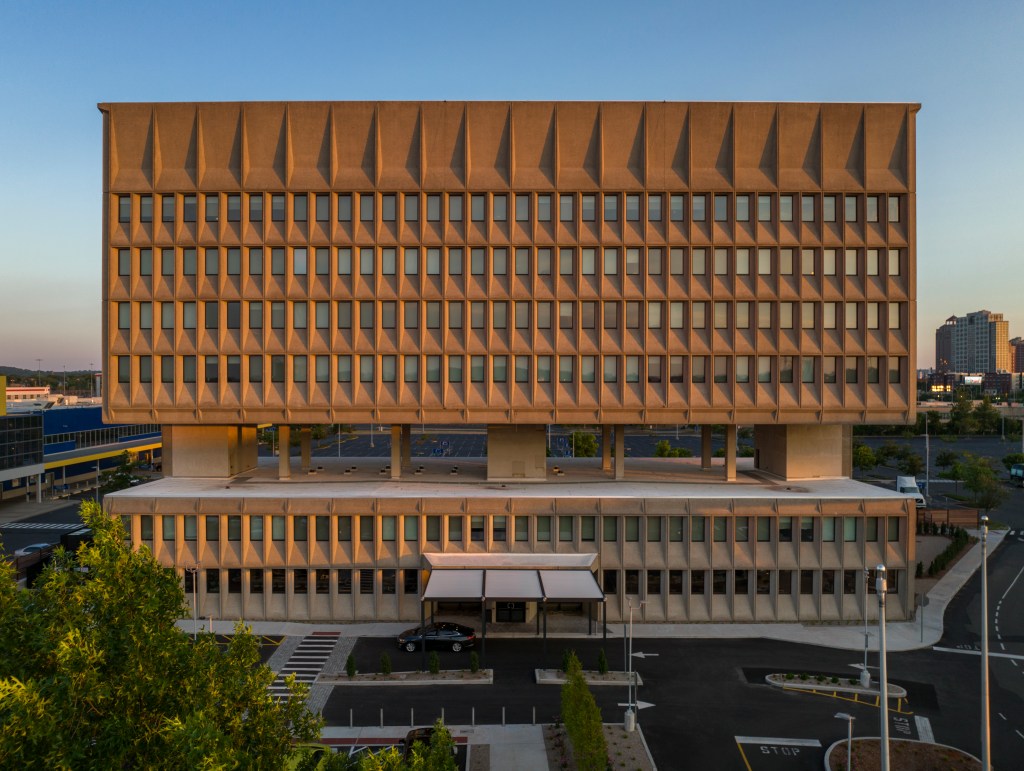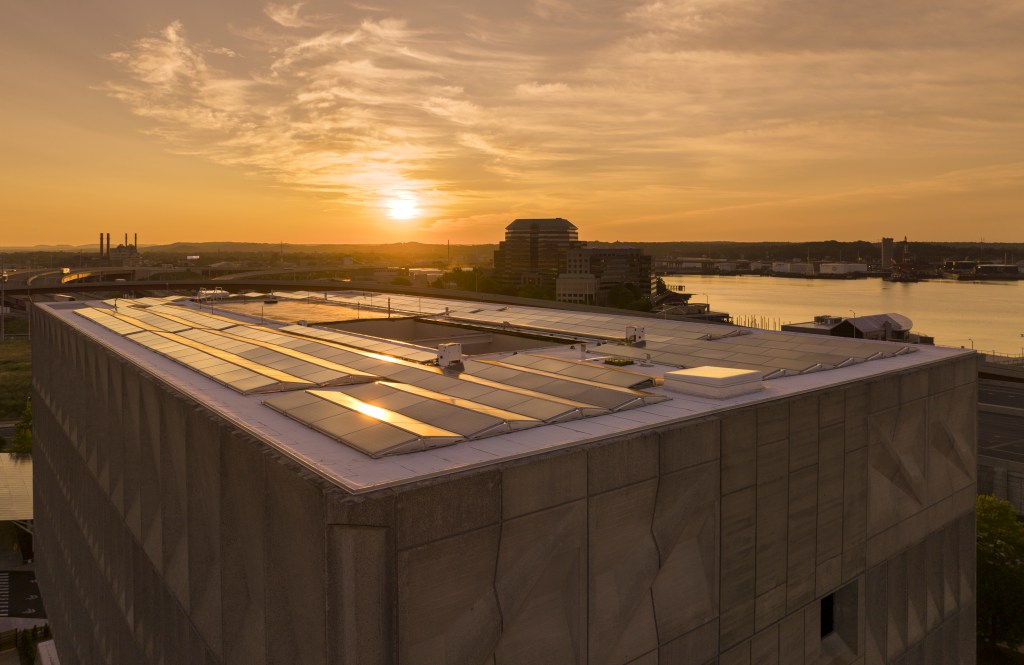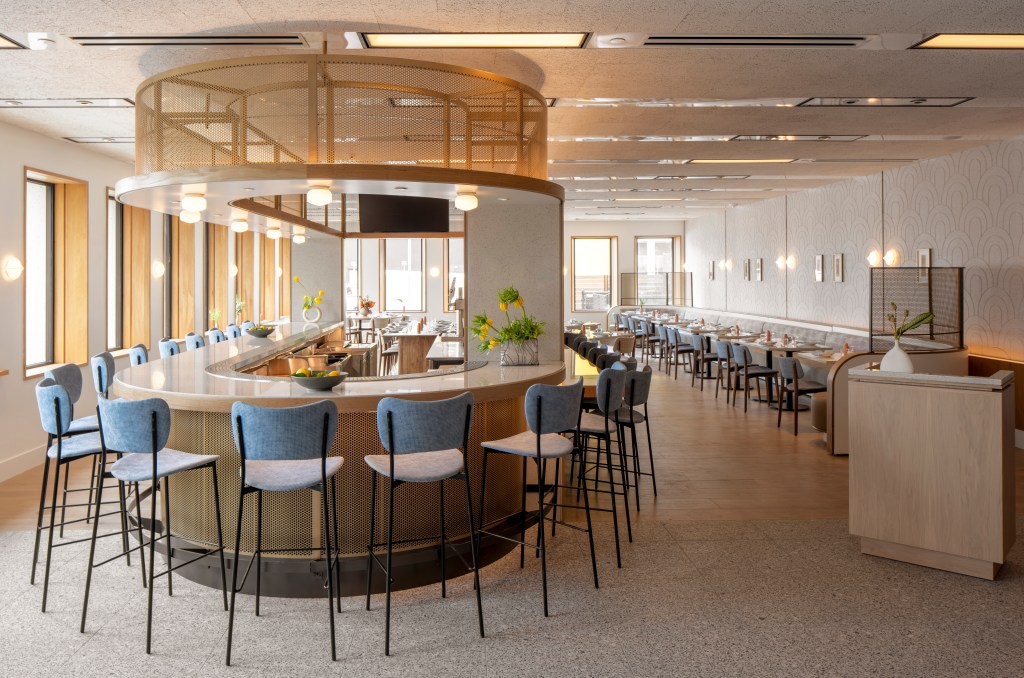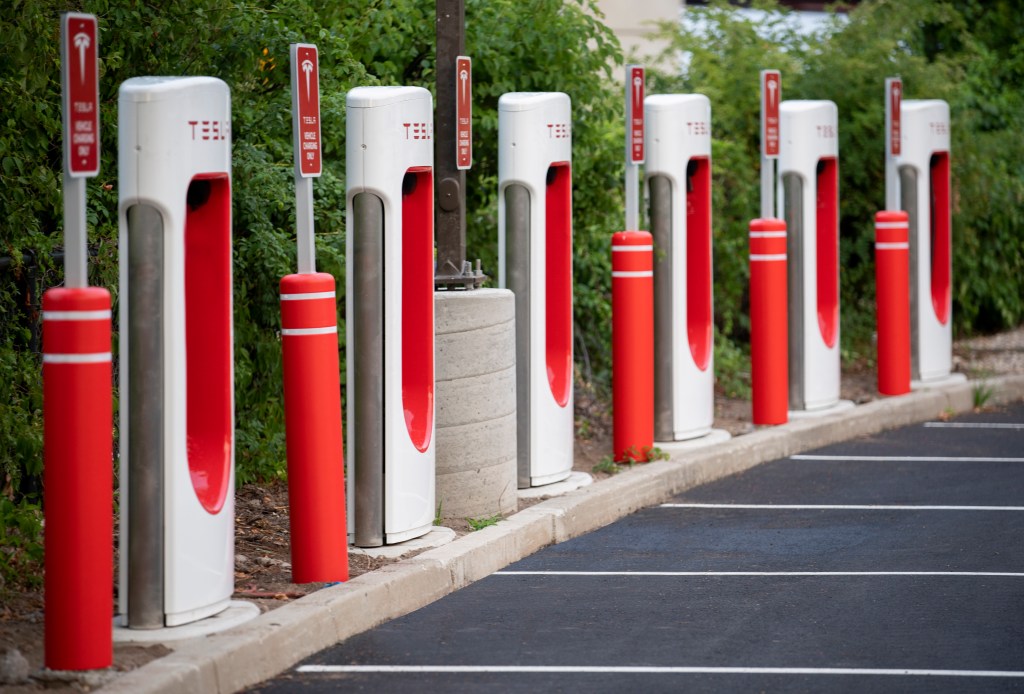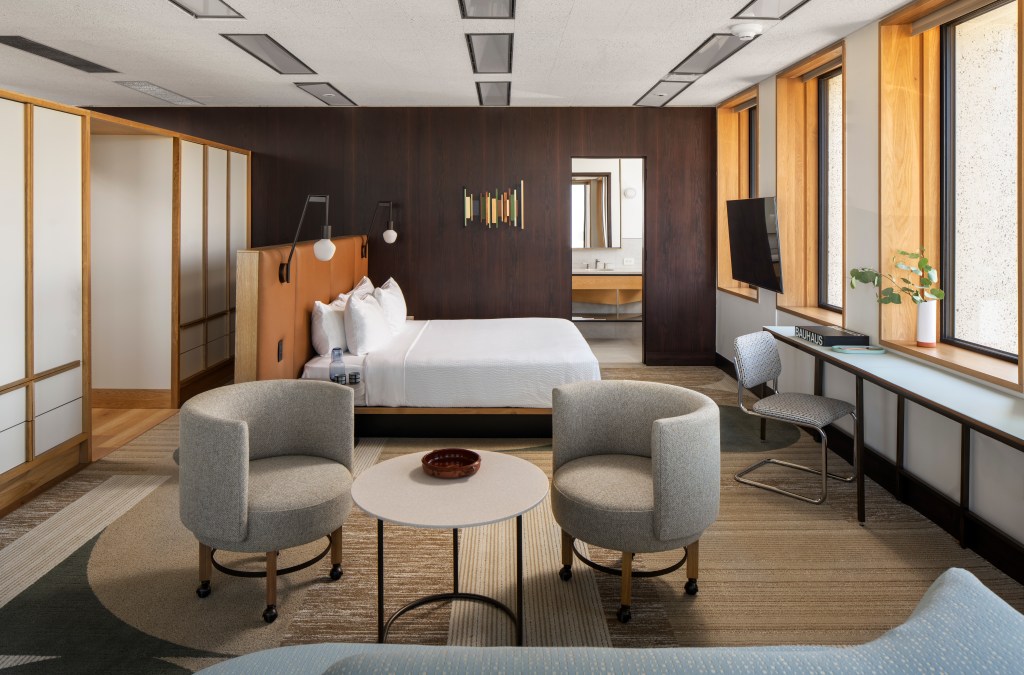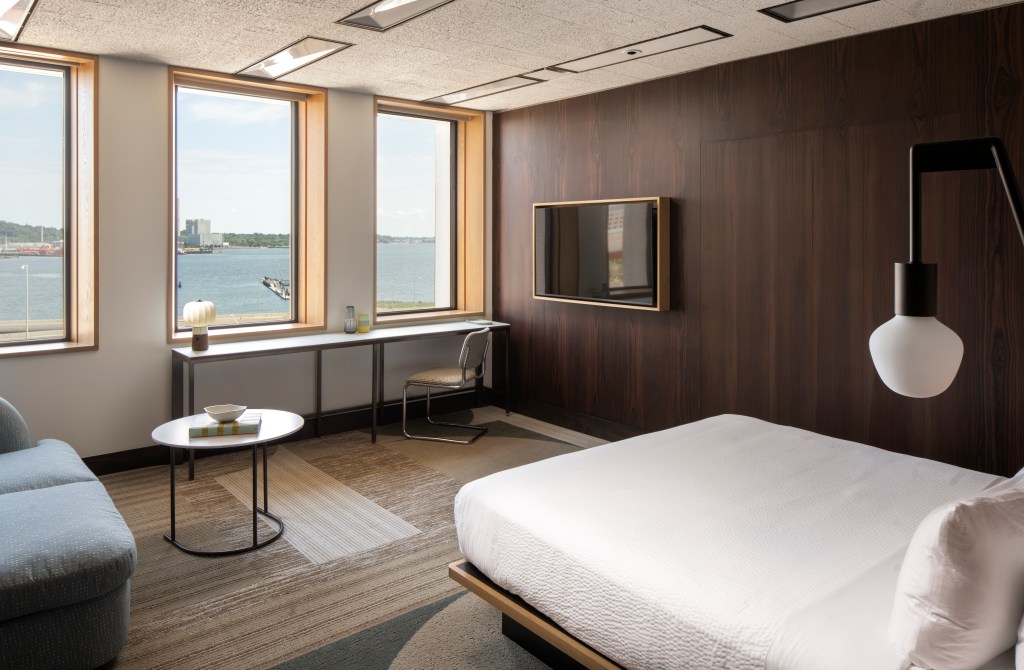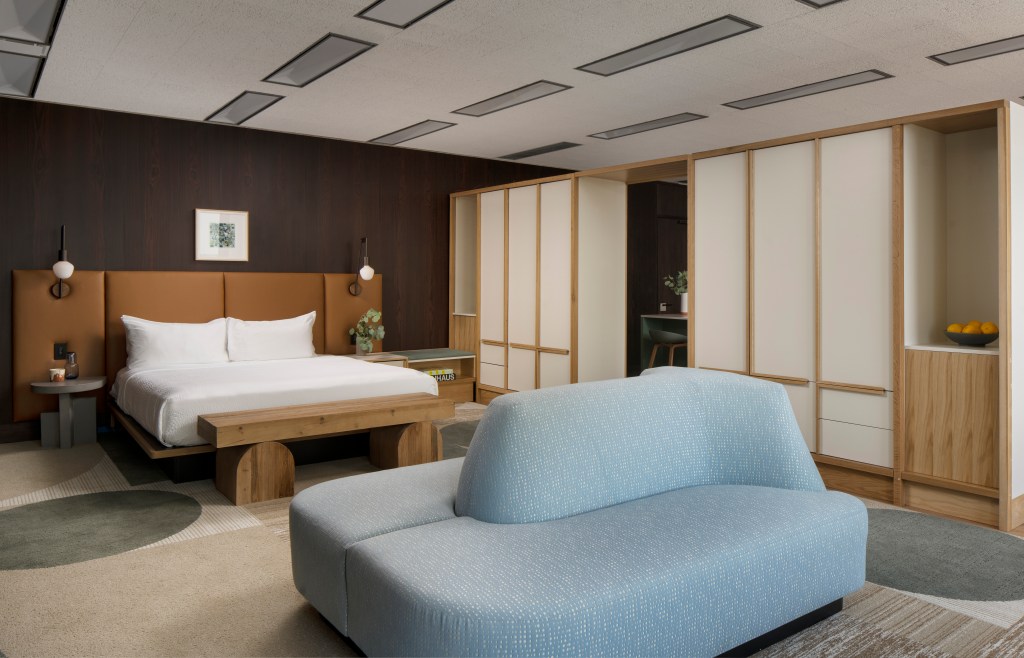When architect and developer Bruce Redman Becker envisioned the opportunity to create Hotel Marcel New Haven, Tapestry Collection by Hilton which opened in May 2022, he set an ambitious goal to achieve something no one else in the U.S. had ever done—to create a hotel that operated fully on renewable energy, without any use of fossil fuels.
Today, that vision is now a reality and Hotel Marcel has also become the first Passive House-certified hotel in the country. The Passive House certification, managed by Passive House Institute (PHI), is the only internationally recognized performance standard for air tightness and energy consumption, verified with field-tested energy modeling. There are 5,629 buildings globally that have been certified by Passive House Institute of which only 140 are in the United States, and Hotel Marcel is the first hotel with over 100 rooms to be certified in the world. Earlier this year, Hotel Marcel also became one of fewer than a dozen LEED (Leadership in Energy and Environmental Design) Platinum-certified hotels in the country, the highest level of LEED certification** and the first since 2015 to receive this designation.
Additionally, the hotel was named the 2023 Association of Energy Engineers (AEE) Regional Energy Project of the Year in the Northeast U.S. and is the first hotel in the country to receive this accolade. The award recognizes an innovative energy project and special consideration goes to developments that are “firsts of their kind” within the country in which they are created.
"I’ve always been interested in how I can use my talents to transform buildings and places in a way that has a positive outcome. It seemed to me that this was a perfect opportunity to build a hotel that really was part of the solution to the climate crisis."
“I’m an architect and developer—and now owner,” Becker said when he recently spoke with Jean Garris Hand, vice president, Global ESG, Hilton. On what it’s been like leading the first anticipated U.S.-based hotel powered fully by the sun, Becker said, “I’ve always been interested in how I can use my talents to transform buildings and places in a way that has a positive outcome. It seemed to me that this was a perfect opportunity to build a hotel that really was part of the solution to the climate crisis.” (See full interview above).
The building that houses Hotel Marcel was originally designed in 1968 in a striking Brutalist architectural style by Marcel Breuer, a Bauhaus luminary whose teaching and innovative designs influenced a generation of mid-century modern architects. Originally housing offices for a tire company, the building sat vacant for two decades when Becker stepped in with a mission to honor its architectural past while pioneering a sustainable future.
The building was redesigned with a holistic approach to sustainable design and operations, from its power-over-ethernet lighting system that reduced lighting energy use by more than 30% to its more than 1,000 solar panels that power the guest rooms, kitchen, laundry facilities and 7,000-square-foot meeting space.
Sustainable measures also extend into hospitable service guests can expect, including:
- Serving locally sourced menu items and organic wines at the hotel’s restaurant, BLDG.
- Conserving waste through initiatives like repurposing kitchen scraps into healthy pet treats for dogs staying at the hotel.
- 24 onsite charging stations available for guests and visitors with electric vehicles.
- Providing electric transportation for guests to get around town in a repurposed battery-powered 2016 airport shuttle.
“What we’re learning is that guest comfort is enhanced when you take the more sustainable route,” Becker said, mentioning the triple-glazed glass windows in each guest room that not only reduce energy for the hotel but also block noise pollution for guests.
The legacy of Hotel Marcel stretches far beyond its LEED Platinum or Passive House certification, industry awards and sustainable measures. It stands as a call for transformation within an entire industry. The hotel isn’t just a destination; it redefines what is possible when human ingenuity marries ecological responsibility.
In the end, Becker’s resounding words encapsulate the heart of Hotel Marcel’s transformative narrative: “You don’t have to be an engineer or an architect to feel how different this is.” Standing tall, Hotel Marcel tells a story of architectural revival and environmental reverence, leaving a legacy that shows what’s achievable when passion, innovation and sustainability work hand in hand.
*In order for a building to be Passive House Certified, it needs to rely on a combination of energy efficiency with passive solar and internal heat gains to dramatically reduce space heating demands and allow for simplified methods of providing needed heat. The concept is implemented through stringent performance standards for airtightness and energy consumption, and verified with a field-tested energy modeling program, the Passive House Planning Package (PHPP).
**Platinum is the highest level of LEED certification, requiring at least 52 of the available 69 LEED points.
